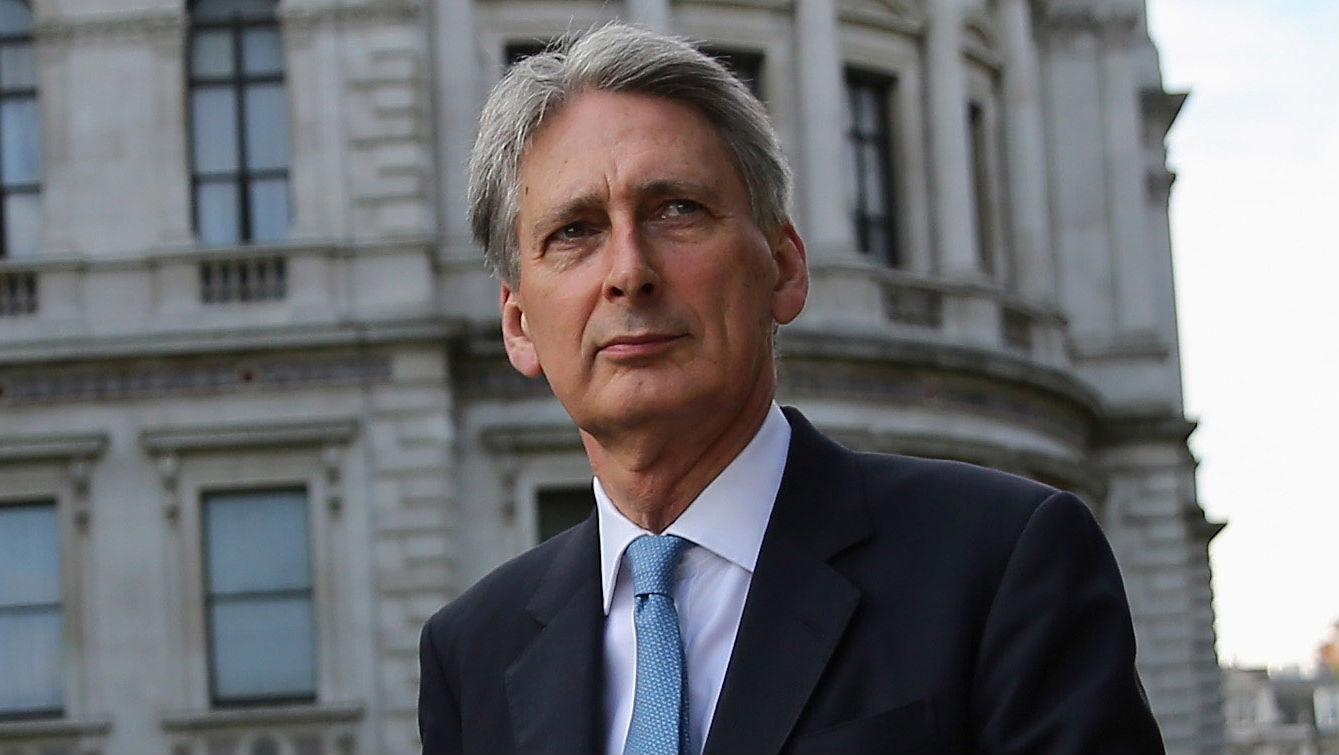Tories bitterly divided on the cost of no-deal Brexit
Establishment Conservatives like Spreadsheet Phil are becoming the resistance


A free daily email with the biggest news stories of the day – and the best features from TheWeek.com
You are now subscribed
Your newsletter sign-up was successful
Chancellor Philip Hammond has publicly chastised his fellow Tory Jacob Rees-Mogg for claiming that a no-deal Brexit could boost the economy by around £80bn.
Rees-Mogg, an ally of Boris Johnson and chairman of the European Research Group, claimed there were economic models that showed “the total positive impact of no deal could be in the region of about £80bn”, reports The Guardian.
Hammond, who is virtually certain to be demoted to the backbenches after Johnson’s likely leadership victory, has emerged as a standard bearer for the side of the Conservative party that refuses to countenance leaving the EU without a withdrawal agreement.
The Week
Escape your echo chamber. Get the facts behind the news, plus analysis from multiple perspectives.

Sign up for The Week's Free Newsletters
From our morning news briefing to a weekly Good News Newsletter, get the best of The Week delivered directly to your inbox.
From our morning news briefing to a weekly Good News Newsletter, get the best of The Week delivered directly to your inbox.
Rees-Mogg’s claim came in an opinion piece for The Daily Telegraph, which was itself pitched as a rebuke to Hammond’s declaration in front of the House of Commons that “in a disruptive no-deal exit there will be a hit to the exchequer of about £90bn”.
That amount was dismissed by Rees-Mogg, who accounted for the £170bn divergence between his and Hammond’s sums by saying the chancellor’s number is “still so heavily reliant on the Treasury’s ‘Project Fear’ economic model first published in November 2018”. This model, he argues, was based on “assumptions… which range from the absurd to the merely dubious”.
Brexit Secretary Stephen Barclay joined the chorus of derision, by laughing at Hammond’s claim, reports the Daily Mail.
“Firstly, that’s a prediction for 2035… and it is very difficult for any Finance Ministry, with certainty, to predict 15 years after the implementation period. Secondly, that figure assumes no government intervention. Now, again, there are teams within the Treasury working on what government intervention would look like in the event of no deal.”
A free daily email with the biggest news stories of the day – and the best features from TheWeek.com
Barclay said Hammond was quoting “selectively” from official reports.
Downing Street also “hit back” at Hammond, says PoliticsHome, with a spokesman for the PM saying: “The Chancellor has on a number of occasions pointed to some research from last year which was modelling Chequers-type agreements against a no-deal scenario. The Chancellor has obviously, over a number of weeks now, been making a particular argument of his own in relation to the Conservative Party’s leadership contest.”
Yet further pessimistic no-deal predictions emerged on Wednesday. Morgan Stanley released a report that warned the pound could fall to parity with the dollar.
“A drop to historic lows of $1.00-$1.10 would come under the market’s worst-case scenario of the UK leaving the European Union without a deal, a risk that the bank says is growing,” reports Bloomberg.
It is against this backdrop that Hammond, a normally stolid politician who, during his ministerial career, earned the nickname “spreadsheet Phil”, has begun to be more publicly proactive. In Prospect magazine, Marie Le Conte quotes a speech he made to civil servants this week: “It has not escaped my attention that the next prime minister’s majority will be only three, and that I will be a backbencher.”
Le Conte reflects: “Unlike independent-minded MPs who’ve never met a hill they wouldn’t die on, such a loyal senior figure deciding to turn against his leadership may well inspire others.”
James Blitz in the Financial Times adds: “Mr Hammond is now at the centre of a phalanx of leading Conservatives who are likely to leave the cabinet next week — David Gauke, Greg Clark, David Lidington, Rory Stewart — and who will fight tooth and claw to stop Britain crashing out.”
On the opposing side, Johnson’s team is coming into focus. Daniel Moylan, a “combative Eurosceptic”, has been appointed to a key advisory role in a move that signifies that Johnson is “serious about his promise to leave the EU on Oct 31 with or without a deal”, reports the Telegraph. The newspaper says “supporters of a clean-break Brexit with infrastructure on the Irish border are now in the ascendancy on his leadership team”.
As the two sides squared up, Theresa May made her last major speech as prime minister on Wednesday, warning against “uncompromising absolutism”, reports the BBC. In an address at Chatham House, she argued that compromise was the essence of political progress: “Being prepared to make compromises in order to make progress does not entail a rejection of our values and convictions by one iota. Rather it is exactly the way to defend them.”
William Gritten is a London-born, New York-based strategist and writer focusing on politics and international affairs.
